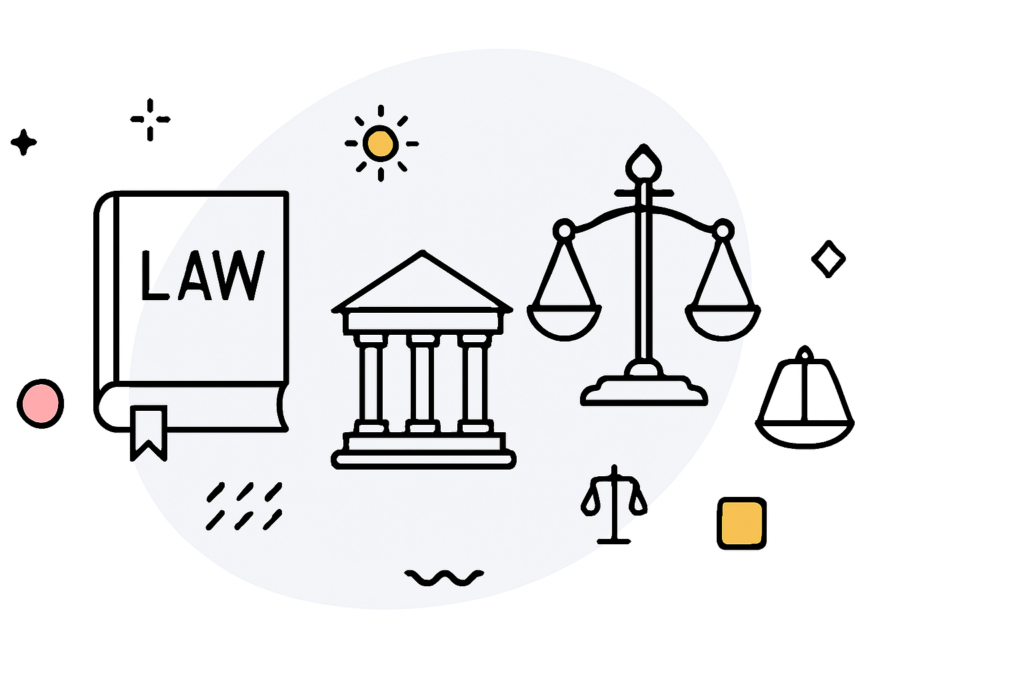The principles of a fair trial are fundamental to ensuring justice in the criminal justice system. These principles protect the rights of the accused while maintaining the integrity and impartiality of the trial process.
Let’s explore the key safeguards that uphold justice in the courtroom.
1. Presumption of Innocence: The Cornerstone of Justice

Core Principle
At the heart of a fair trial is the presumption of innocence. This means the accused is considered innocent until proven guilty beyond a reasonable doubt.
- The burden of proof lies with the prosecution, not the accused.
- The accused does not have to prove their innocence.
Key Case
This principle is enshrined in the Universal Declaration of Human Rights (Article 11) and upheld in cases like Kali Ram Vs State of Himachal Pradesh (1973).
2. Right to a Speedy Trial: Justice Delayed is Justice Denied
Importance of Speedy Trials
The right to a speedy trial ensures that individuals are not subjected to prolonged detention or indefinite uncertainty.
- Delays in trials violate Article 21 of the Indian Constitution, which guarantees life and personal liberty.
Key Case
In Hussainara Khatoon Vs State of Bihar (1979), the Supreme Court emphasized that speedy trials are essential for justice, leading to reforms to reduce delays.
3. Right to Legal Representation: A Fair Trial for All
Legal Representation
Everyone has the right to a lawyer who can effectively defend their case.
- Legal representation ensures that justice is accessible, especially for those unable to afford a lawyer.
Key Case
The Suk Das Vs Union Territory of Arunachal Pradesh (1986) case affirmed the necessity of legal aid for those who cannot afford a lawyer, ensuring access to justice for all.
4. Right to a Public Hearing: Transparency in Justice

Public Trials
Public hearings ensure transparency and accountability in the judicial process.
- Section 366 of the BNSS mandates that criminal trials be open to the public, with exceptions for certain sensitive cases (e.g., sexual offenses).
Purpose
This principle ensures that the trial process is not only fair but also perceived as transparent and just.
5. Right to Be Heard: A Fundamental Right
Right to Present a Case
The right to be heard ensures that both parties in a trial can present their case.
- It ensures that the accused has a voice in the proceedings, making the trial just and balanced.
Key Case
The Maneka Gandhi Vs Union of India (1978) case reinforced the idea that a fair trial includes the right of the accused to present evidence and be heard.
6. Right Against Self-Incrimination: No Forced Confessions
Protection from Coercion
The right against self-incrimination protects the accused from forced confessions or coercive interrogations.
- Article 20(3) of the Indian Constitution ensures that no person can be forced to be a witness against themselves.
Key Case
In Nandini Satpathy Vs P.L. Dani (1978), the Supreme Court ruled that the accused cannot be forced to answer questions that could incriminate them, protecting individuals from coercion.
Conclusion: Upholding Justice, Protecting Rights
The principles of a fair trial form the foundation of a just criminal justice system. From presumption of innocence to right to legal representation, these safeguards protect the rights of the accused and ensure fairness in the trial process.
India continues to lead the way in guaranteeing a fair trial for all through landmark case laws and adherence to international human rights norms.
Want to Know More About Legal Principles or Follow Recent Legal Reforms?
Ready to explore the exciting field of law? Dive deeper into the world of law with Edzorb Law, where we break down complex legal concepts with clarity and precision.

 Podcast
Podcast








 Features
Features






